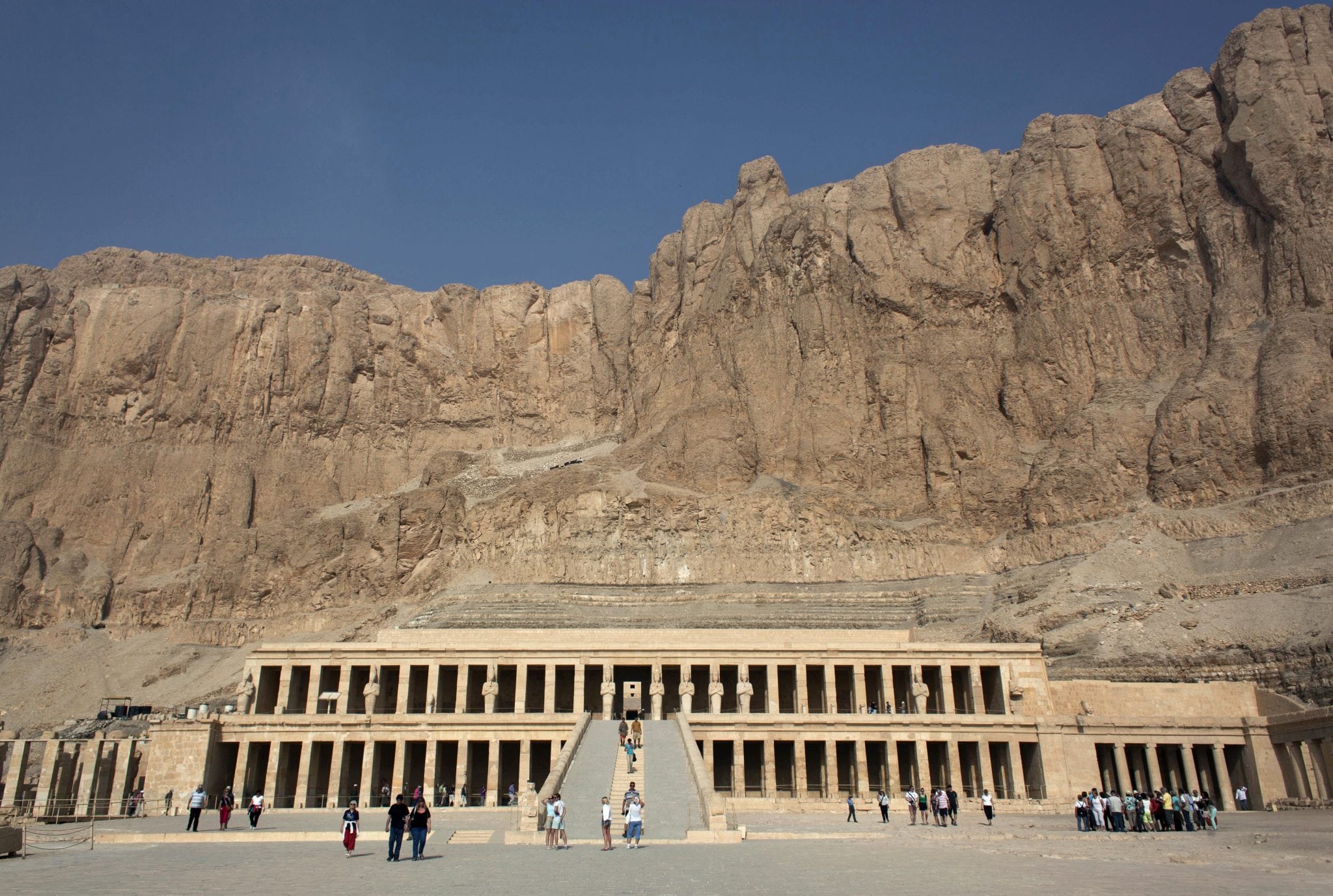Skift Take
This is not how you assure visitors that Egypt is once again open for business.
Egyptian tourism workers and residents of the ancient city of Luxor voiced their anger Monday after an Islamist linked to a former Islamic militant group that carried out the city’s deadliest terrorist attack, killing nearly 60 tourists in the 1990s, was appointed governor of their province.
Workers, opposition politicians and activists in the southern city Luxor said they plan to seal off the office of the governor to prevent Adel el-Khayat from entering. Tourism is the lifeblood of Luxor, home to some of Egypt’s most dramatic ancient temples and pharaonic tombs, including that of King Tutankhamun. The city has been hit hard by the downtown in foreign visitors amid the past two years of turmoil.
Members of the tourism industry worried over the impact of the new governor on tourism — both because of his ties to the former militant Gamaa Islamiya and because of the prospect of a hard-line Islamist running the city and surrounding province.
“Is it unimaginable that those who plotted, participated or played any role in the massacre of Luxor, become the rulers even if they renounced and repented it,” said Tharwat Agamy, the head of Luxor’s Tourism Chamber.
He said that he along with others in tourism industry, politicians and activists are holding meetings now. They are considering sealing the doors of the governor’s building with chains and locks and sending him back to airport.
El-Khayat belongs to the Construction and Development party, the political arm of Gamaa Islamiya, which waged a bloody armed insurgency against the state in starting 1992, attacking police, Copts and tourists. In 1997, gunmen from the group attacked tourists visiting Luxor’s more than 3,400-year-old Hatshepsut Temple, spraying them with gunfire and stabbing them and killing 58.
More than 1,200 people died in the campaign of violence by the group and another militant group, Islamic Jihad.
Both the Gamaa and Islamic Jihad renounced violence in the 2000s, amid a crackdown by the regime of then-President Hosni Mubarak. Since Mubarak’s fall in early 2011, both have launched political parties, and the Gamaa’s is allied to Islamist President Mohammed Morsi, of the Muslim Brotherhood.
Agamy denounced el-Khayat’s appointment by Morsi on Sunday as political, saying it aimed to solidify the president’s support among Islamist hard-liners ahead of protests planned by the liberal opposition and youth activists for the end of the month calling for his ouster. The Gamaa’s party has threatened to counter the opposition protests with an “Islamic revolution.”
“Morsi needs the group to act as the military wing of the Muslim Brotherhood,” Agamy said.
Appointed Sunday among 17 other new governors, el-Khayat said that he would not be influenced by his political affiliation.
“I am honored to belong to the Islamist current, but now as a governor I am in the service of the nation,” he said in comments emailed to Associated Press by the media person of the group. “It is not fair to judge someone just because of affiliation but by evaluating their wok, performance and skills.”
He said that the Gamaa suffered under Mubarak’s regime, claiming that the group didn’t order the Hatshepsut attack, was not aware of it and condemned it afterward.
However, the group claimed responsibility for the attack at the time and two years later, one of the top group’s leaders Rifai Ahmed Taha warned the government that the Luxor massacre could be repeated if Egypt does not change its hostile policy against the Islamic movement. Taha, a veteran of jihad in Afghanistan believed to have been close to al-Qaida chief Osama bin Laden, is now living freely in Egypt.
One of the founders of Gamaa Islamiya Nageh, Ibrahim said that el-Khayat has split from the group when it divered to militancy and that for 30 years he devoted his life to work as an engineer in a government agency in the ministry of housing.
Worries over el-Khayat were also linked to his group’s current positions and its strict and hardline ideology. The group calls for strict implementation of Islamic Shariah law, which involves imposing Islamic dress code on women, banning alcohol, preventing mixes of sexes and others. Becoming a governor in a touristic city while holding these ideas, added to touristic workers’ worries already suffering from battered tourism industry.
Tourism has been dealt a blow since the ouster of Mubarak and break up of security in 2011.
For residents of Luxor, the main city in a province of around 1 million people, tourism is the main employer in the area — and practically the only industry besides farming and a sole sugar factory processing the region’s sugar cane crops.
The number of tourists coming to Egypt fell to 9.8 million in 2011 from 14.7 million the year before, and revenues plunged 30 percent to $8.8 billion. Last year, the numbers climbed up to just over 10 million, but most tourists go to the beach resorts of the Red Sea, staying away from Nile Valley sites like Luxor.
Copyright (2013) Associated Press. All rights reserved. This material may not be published, broadcast, rewritten, or redistributed.
![]()
The Daily Newsletter
Our daily coverage of the global travel industry. Written by editors and analysts from across Skift’s brands.
Have a confidential tip for Skift? Get in touch
Tags: egypt, luxor, politics, tourism
Photo credit: Tourists at Luxor site in Egypt. Associated Press
